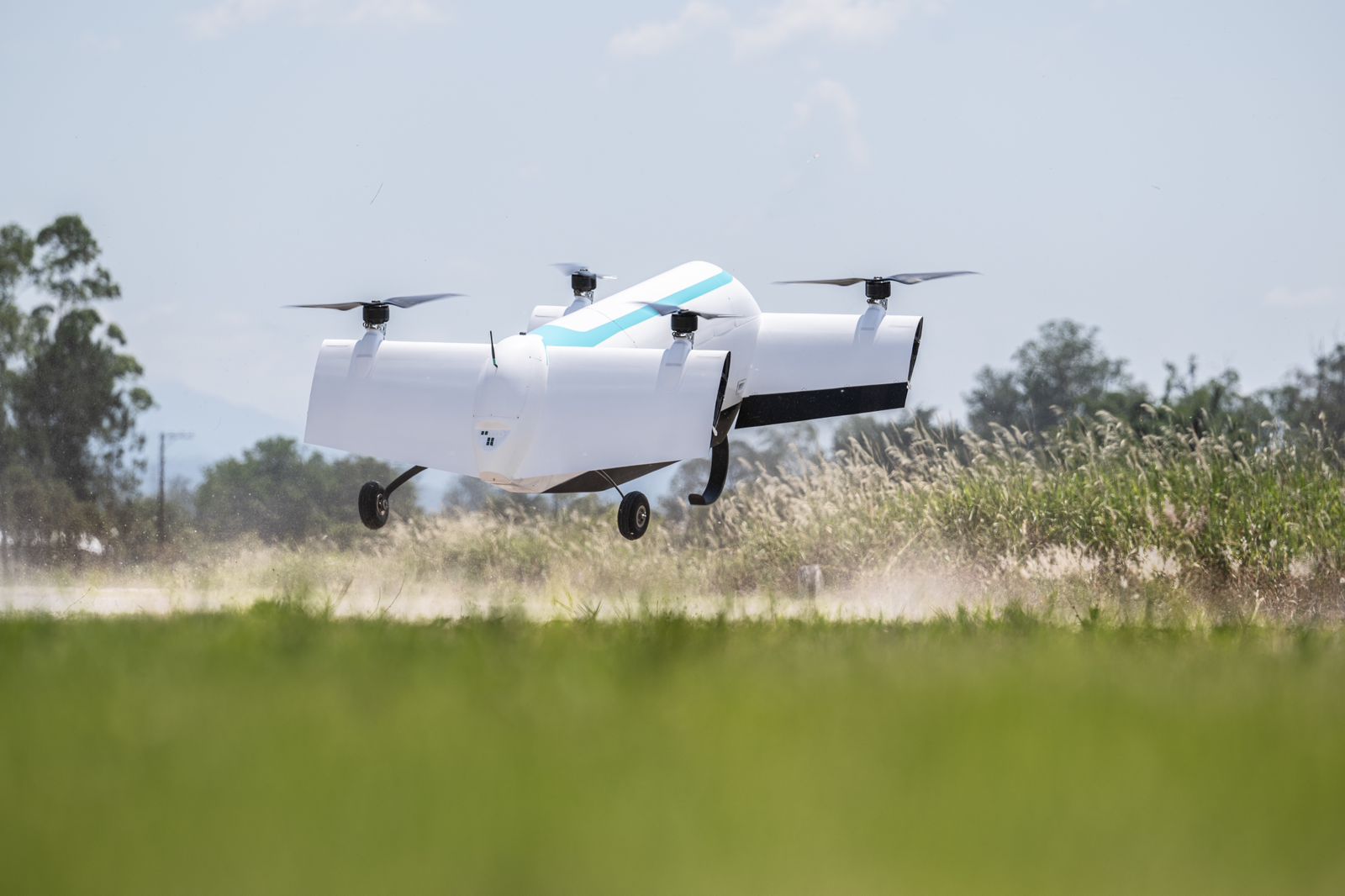Moya Aero has achieved its first flight with the autonomous eVTOL aircraft it is developing mainly for logistics and agricultural applications. On Monday, the Brazilian start-up reported that a technology demonstrator had flown for the first time on November 15, marking the start of a flight test campaign it hopes will lead to type certification and service entry in 2026.
The first flight with the 70-percent-scale aircraft was made from the Fazenda Maristela airfield close to São José dos Campos in São Paulo state and lasted five minutes. The Moya team has made 14 more flights since then and expects to start expanding the flight envelope during the summer season in the Southern Hemisphere. The company has already met with the Brazilian aviation regulator ANAC to agree on a process for certification.
The Moya aircraft will have a maximum payload of 200 kilograms (440 pounds), with a hybrid-electric version expected to offer a range of up to 300 km (190 miles), while an all-electric version is limited to 110 kilometers (68 miles). It uses electric motors produced by T-Motors and batteries developed by Moya itself.
The design features two pairs of propellers, installed on a tandem wing configuration, each powered by its own electric motor. Rather than tilting the wings or propellers, the fuselage rotates between vertical and horizontal phases of flight.
Letters of Intent Pass 100 Aircraft
According to Moya, which is a spin-off from aerospace services group ACS Aviation, it now holds letters of intent (LOIs) from prospective customers covering 100 of the aircraft. The most recent commitment was made on November 29 by 7Reis Farm in Brazil’s Mato Grosso state, with the company planning to use five aircraft to spray large soya bean plantations. Earlier in November, Brazilian civil social organization MineToo signed an LOI covering 50 of the aircraft, and in October Canadian logistics group N2 signed a provisional sales agreement for four aircraft.
“Our eVTOL is more versatile,” said Moya Aero CEO Alexandre Zaramela. “It sprays six times more hectares per hour than conventional small drones and with greater precision to minimize dispersant drift.”
As evidence of what he sees as burgeoning demand for a more environmentally sustainable logistics platform, Moya Aero pointed to a recent report by market research group Technavio. It predicts a 4.61 percent compound annual growth rate in the Brazilian express delivery market between 2022 and 2027.
Development work is being supported by a $2 million grant Moya received earlier this year from FINEP, a Brazilian government organization that promotes science, technology, and innovation. It has received the same amount in seed fund backing from investors Fundepar, Hards, Techstars, and Seed4Science. Helisul Drones, ProAero, and Certifica Drones are partners in the program.
